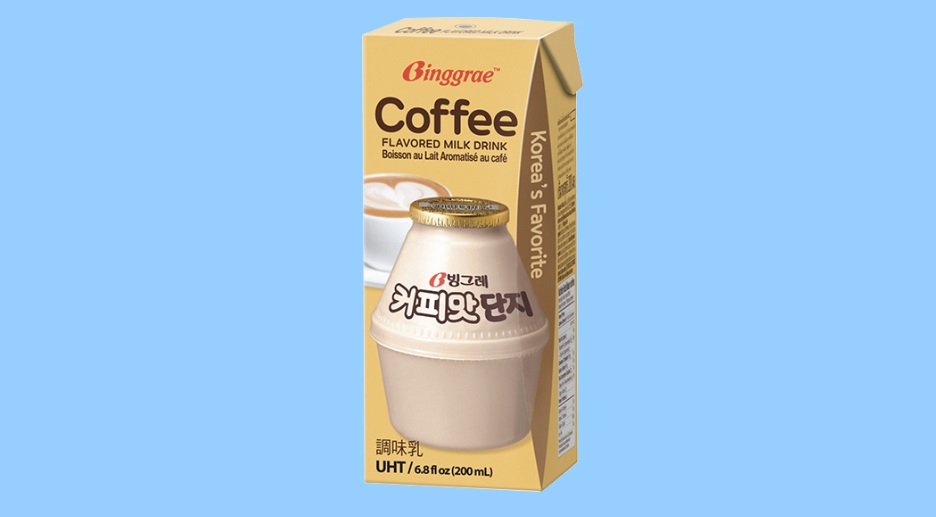
Korean coffee milk, or “keopiuyu,” is not just a delightful blend of coffee and milk; it’s a popular caffeinated beverage that consistently offers a caffeine kick with each serving. Typically, you can expect between 100 to 125 mg of caffeine per serving, making it an excellent choice for those needing a gentle boost to their day.
Key Takeaways
- Caffeinated Delight: Korean coffee milk is ideal for those looking for a moderate caffeine boost.
- Flexible Preparation: The caffeine content in coffee milk can vary based on how it’s made and the concentration of coffee used.
- Widely Available & Easy to Prepare: This tasty drink is not only easy to find but also simple to prepare, making it a practical choice for daily enjoyment.
What is Korean Coffee Milk?
Korean coffee milk, known for its creamy texture and rich flavor, holds a special place both in the hearts of locals and the broader beverage market. It merges traditional coffee flavors with the smoothness of milk, creating a beverage that’s both refreshing and energizing.
Its origin story, while not as ancient as other Korean drinks, reflects a modern twist on coffee culture, adapting to the fast-paced lifestyle of Korea’s bustling cities. This drink not only satisfies thirst but also connects with the social fabric of Korean life, where coffee shops serve as pivotal meeting spots in the urban landscape.
Caffeine Content in Korean Coffee Milk
Korean coffee milk typically contains about 100 to 125 milligrams of caffeine per serving. This puts it in the ballpark of a standard cup of coffee, which usually offers around 95 milligrams per 8-ounce serving. However, unlike a straight brew, coffee milk blends the robust flavors of coffee with the creamy, soothing texture of milk, which might make you wonder about its kick.
Compared to energy drinks, which can soar to upwards of 250 milligrams per can, coffee milk offers a gentler lift, suitable for those who appreciate a milder caffeine experience.
Health Implications of Caffeine in Coffee Milk
While enjoying a glass of Korean coffee milk can be a delightful part of your morning routine, it’s good to be aware of how its caffeine content might affect you. On the plus side, moderate caffeine intake is linked to several health benefits, such as improved mood, enhanced brain function, and a temporary boost in metabolic rate. For many, it’s a cherished morning ritual that energizes and prepares them for the day.
However, caffeine can also have its downsides. Those who are sensitive may experience jitters, anxiety, or disrupted sleep patterns. Particularly in coffee milk, where the caffeine content is significant, it’s wise to consume it mindfully, especially later in the day. Health professionals often recommend moderation in consumption, suggesting no more than 400 milligrams of caffeine daily for most healthy adults.
Preparation and Varieties of Korean Coffee Milk
Preparing Korean coffee milk is straightforward and allows for plenty of creativity. At its core, this drink is made by blending brewed coffee or coffee syrup with milk. The simplest method involves mixing coffee syrup—sweetened and concentrated coffee—directly into milk, stirring until well combined. This method is particularly popular because it’s quick and you can adjust the sweetness and strength to taste.
For those who prefer a fresh brew, you can make coffee milk by mixing hot coffee with milk, allowing the flavors to meld. This version can be tailored by choosing different types of coffee beans, from robust dark roasts to lighter blends, each offering a unique profile to the coffee milk.
Varieties of Korean coffee milk can also include different types of milk—such as almond, soy, or oat milk for a vegan twist. Some cafes in Korea serve iced versions or add toppings like whipped cream or a sprinkle of cinnamon for extra flavor.
Cultural Impact of Coffee in Korea
Coffee plays a pivotal role in modern Korean society, far beyond just a morning energizer. Over the decades, coffee has woven itself into the very fabric of Korean culture, becoming a symbol of social interaction and leisure. Cafes are ubiquitous in cities like Seoul, where they serve as popular meeting spots, offering a place for social gatherings, business meetings, or quiet contemplation.
The introduction of coffee milk has expanded this culture into more casual, everyday settings, making the enjoyment of coffee accessible to all ages and preferences. It’s not uncommon to see people of all demographics enjoying coffee milk as a less intense, sweeter alternative to traditional coffee.
The rise of themed cafes in Korea, from book cafes to animal cafes, highlights how integral coffee culture has become in facilitating diverse social experiences. These spaces are more than just places to sip coffee; they are vibrant hubs of community life, creativity, and cultural expression.
FAQs
Can You Get Decaffeinated Korean Coffee Milk?
Yes, it’s possible to enjoy decaffeinated Korean coffee milk. This option is perfect for those who love the flavor of coffee milk but prefer to avoid caffeine. Decaffeinated coffee milk uses decaffeinated coffee or coffee syrup, maintaining the taste while minimizing the caffeine content.
Is Korean Coffee Milk Suitable for Children?
Korean coffee milk, due to its caffeine content, is generally not recommended for children. Caffeine can affect children more profoundly than adults, potentially leading to restlessness and sleep disturbances. For a child-friendly option, consider making a caffeine-free version using decaffeinated coffee.
How Does Adding Milk Affect the Caffeine Content?
Adding milk to coffee milk doesn’t reduce the caffeine content but dilutes it, making the caffeine less concentrated. This means that while the overall caffeine content remains the same, the impact per sip is reduced, resulting in a milder effect compared to drinking straight black coffee.
Final Thoughts
To summarize, Korean coffee milk does indeed contain caffeine, typically ranging between 100 to 125 mg per serving. This popular beverage combines the rich flavors of coffee with the creamy texture of milk, creating a delightful drink enjoyed across various settings in Korea.
The cultural impact of coffee milk in Korea is significant, reflecting broader trends in Korean social life where coffee plays a central role. Whether in a bustling city cafe or a quiet corner at home, Korean coffee milk offers both a caffeine boost and a taste of Korean modernity.









